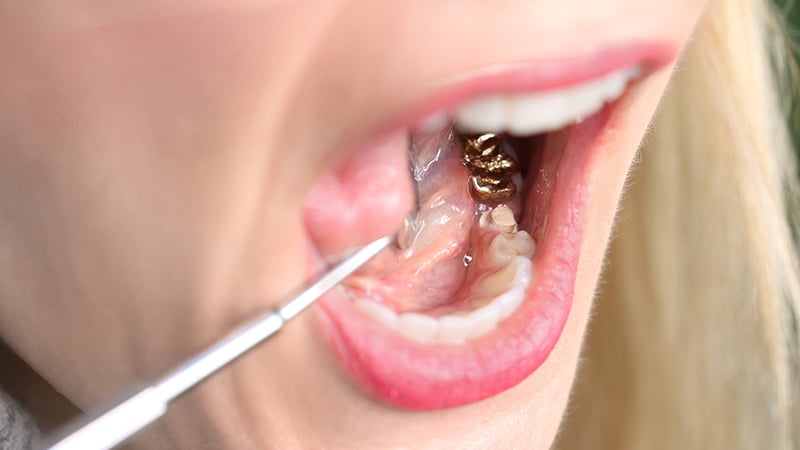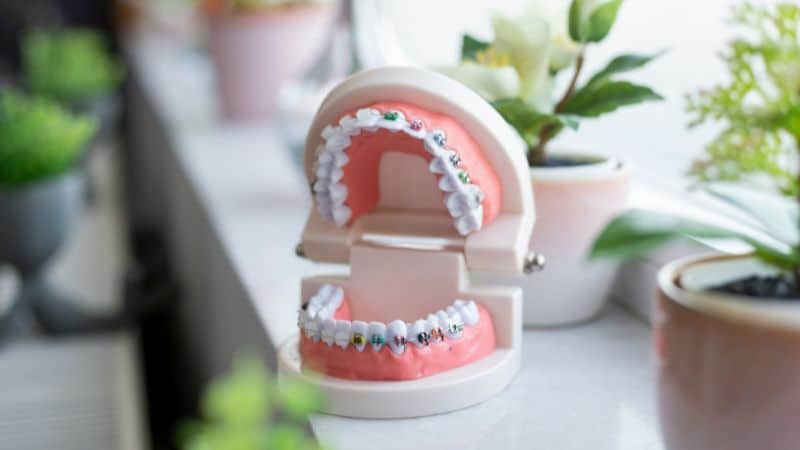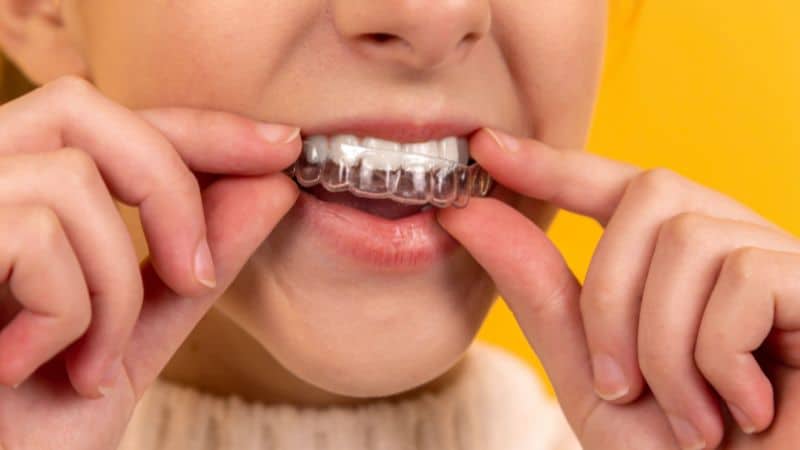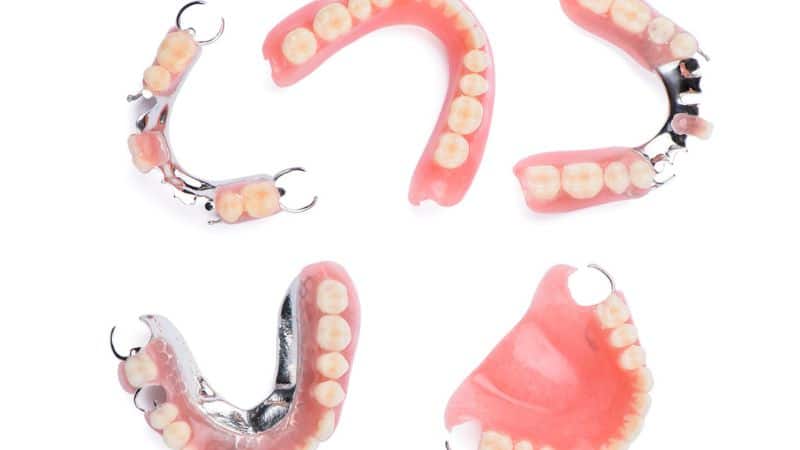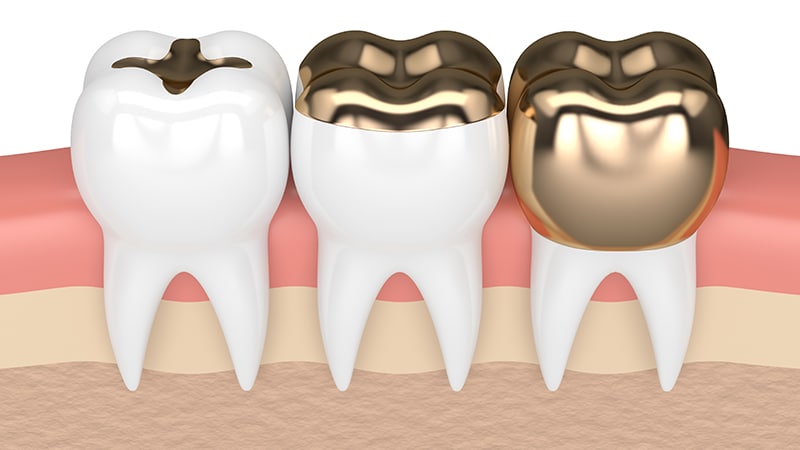
Gold Crowns and Gold Fillings: What You Need to Know
Loss of tooth structure can occur due to decay, root canal treatments, or trauma. Rebuilding and reinforcing the tooth is critical in preventing it from recurrent chipping or fracturing. This is when dentists usually recommend dental crowns and fillings to help the tooth withstand the biting forces and daily wear and tear. Although there are a few types of crowns available for teeth restoration, gold crowns and gold fillings have made a mark in the world of dentistry. Some of the key reasons for the use of gold are biocompatibility (gold is non-toxic to the human body), durability, versatility, and corrosion resistance.
With the availability of the near-natural look of ceramic crowns, gold crowns may have lost some of their sheen over time, yet they have certain unique advantages over other materials used in restorative treatments. Read on to learn more about the pros and cons of gold fillings and gold crowns.
What are Gold Fillings and Gold Crowns Made Of?
Typically, dental crowns and caps could be all-metal, all-ceramic (usually porcelain), or porcelain-fused-to-metal (PFM). Gold crowns made with full gold or gold alloys fall under the “all metal” crown category. However, it is also possible to use a combination of gold with porcelain to create a PFM crown.
When gold crowns include gold alloys, they may fall into one of the below categories:
- High Noble Alloys: Consist of at least 60 percent of precious metals, such as gold, palladium, or platinum, with gold being a minimum of 40 percent of the total composition
- Noble Alloys: Include 25 percent precious metals
- Non-Noble Alloys: Primarily uses chromium, nickel, or other such metals, while the mix of gold or other precious metals is less than 25 percent of the total gold crown
How Long do Gold Fillings or Gold Crowns Last?
As a highly durable metal, gold crowns can withstand extensive chewing, grinding, and heavy biting, making them ideal for those who exhibit strong wear patterns on the teeth. Gold crowns do not easily break or chip, neither do they oxidize or turn black on the surface. Similarly, gold fillings do not produce any discoloration and are less prone to expansion or contraction with changes in temperature. Both, gold crowns and gold fillings can potentially last for decades.
Are Gold Fillings and Gold Crowns Safe?
Gold crowns and fillings offer several health benefits that may be absent in other materials. Gold’s biocompatibility ensures that:
- There are no adverse reactions or negative effects on your health.
- The crowns adapt well to the gum lines.
- The crowns or fillings do not cause any irritation or oral health issues.
Here are some of the other advantages of gold fillings and gold crowns:
- They cause the least wear on opposing teeth and are gentler on your mouth compared to porcelain, which can cause wear of your natural tooth.
- Being malleable, gold can effectively seal the margin of the tooth for preventing any breakdown of enamel or further tooth decay.
- Gold is corrosion-resistant, prevents chipping or fractures, and provides long-lasting dental restoration.
- High polished gold crowns significantly reduce plaque accumulation and present a more pleasant feeling to the tongue.
Although side effects from a gold or gold alloy crown are rare, people with metal allergies may have to consider other types of crowns or fillings. Possible side effects of gold crowns include redness, swelling, gum irritation, lesions, or mouth or lip pain. Remember to discuss any known allergies with your dentist while planning any restorative dental treatments.
What Are the Cons of Gold Fillings and Gold Crowns?
One of the disadvantages of gold crowns and gold fillings is their appearance. While ceramic or porcelain crowns can be color-matched to the shade of your teeth, offering a near-natural look, gold crowns come only in shades of silver, yellow, or white gold.
Although certain celebrities popularized the golden tooth as a fashion statement a few decades ago, most people prefer gold crowns or gold fillings only for the molar or premolar restorations, which are out of plain sight. Besides the rare allergies and the poor aesthetics, here are a few other cons of gold crowns or gold fillings:
- Cost: Gold and gold alloys are more expensive than their ceramic counterparts, which may significantly increase the overall cost of your dental restoration.
- Skill and Expertise: Gold castings and fittings require a considerable amount of skill, technique, and care. It is important that the dentist takes a proper impression of the tooth in order to ensure a precise and accurate fit.
When Should You Get a Gold Filling or Gold Crown?
Gold fillings or gold crowns can create additional support for a damaged or broken tooth, especially if the tooth is prone to break or cannot withstand traditional filling. Your dentist may recommend gold crowns or gold fillings for some of these situations:
- Providing the tooth full coverage after a root canal treatment
- Protecting a severely decayed tooth
- Protecting a tooth whose structure is impacted by wear or trauma
- Covering up tooth discoloration
- Covering a dental bridge or dental implant
- Fixing a recurrent broken teeth problem
Crowns, caps, and fillings are an essential part of protecting, covering, restoring, and reshaping your teeth during a number of different dental treatments. Speak to your dentist about the different materials available for crowns or fillings, before finalizing the one that best meets your oral health needs, insurance coverage, and budget.
Learn More About Our Restorative Dental Treatments and Options
Unsure if gold crowns or gold fillings are the right fit for your restorative dental treatment? The qualified and experienced dental professionals at Centre Dentaire Pierrefonds can examine your condition and give you more details on different dental procedures as well as crowns, caps, or fillings.
As dentists in the West Island of Montreal, we provide comprehensive dental services, including several specialized treatments such as cosmetic dentistry and full mouth rehabilitation and restoration.
Contact us for more information on all our restorative dental procedures. You could also make an appointment with one of our dentists who will help you make the right choice for your oral health and comfort.

